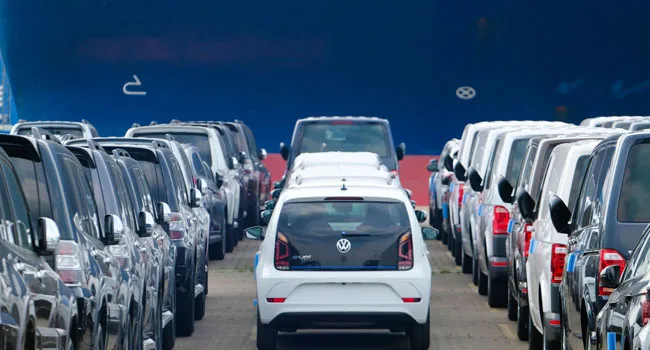Antitrust authorities in the EU and Britain on Tuesday fined a cartel involving some of the world’s biggest carmakers about 550 million euros ($594 million) for preventing competition on vehicle recycling.
The European Commission said 15 manufacturers, including BMW, Ford, Jeep maker Stellantis and Volkswagen, and an industry group colluded to avoid paying car dismantlers and lower consumer pressure to recycle more, the commission said.
It fined the participants, who admitted their involvement and agreed to settle the case a total of about 458 million euros.
“We have taken firm action against companies that colluded to prevent competition on recycling,” EU antitrust chief Teresa Ribera said in a statement.
A parallel probe by Britain’s Competition and Markets Authority (CMA) reached similar conclusions, fining 10 companies and two trade bodies, more than £77 million ($99 million).
The cartel was revealed by Mercedes-Benz, which participated in it but received immunity — and avoided hefty fines across both sides of the Channel — for cooperating with the authorities.
The European Automobiles Manufacturers’ Association (ACEA), an industry lobby group, acted as facilitator, organising meetings and contacts between the manufacturers, the commission said.
The group acknowledged that the infringement “should not have occurred” but said it “neither produced consumer harm nor reduced innovation.”
“Manufacturers have continued to improve car recyclability and today, almost 90 percent of the parts and materials in cars scrapped in the EU are reused and recycled,” an ACEA spokesperson said.
– ‘Buyers’ cartel’ –
Under EU rules, car owners must be able to dispose off old or damaged cars that are no longer fit for use with a dismantler at no cost, with manufacturers picking up the bill if needed.
Car buyers must also be informed about the “recycling performance” of new cars.
But the companies involved, which also included Toyota, Suzuki, Volvo, Honda, Renault, Mitsubishi and Opel, coordinated to avoid paying dismantlers, sharing sensitive information on individual agreements.
The behaviour, which also breached British competition rules, amounted to a “buyers’ cartel” as recycling firms were “unable to negotiate a price with manufacturers”, the CMA said.
The carmakers also agreed not to promote how much of a vehicle could be recycled, recovered and reused and how much recycled material was used in new cars.
“Their goal was to prevent consumers from considering recycling information when choosing a car, which could lower the pressure on companies to go beyond legal requirements,” the commission said.
The infringements spanned from 2002 to 2017, it added.
“These car manufacturers coordinated for over 15 years to avoid paying for recycling services,” Ribera said.
“We will not tolerate cartels of any kind, and that includes those that suppress customer awareness and demand for more environmental-friendly products.”
AFP

